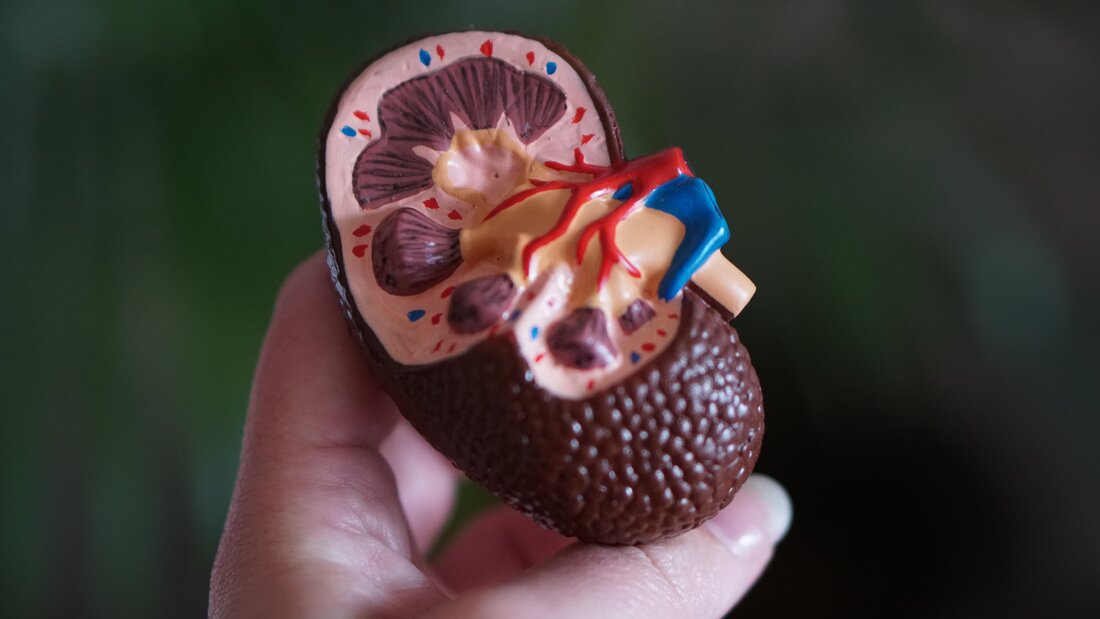Specialist Advice — 11 minutes
What is a kidney stone?

Kidney stones, also called renal calculi or urolithiasis, are the result of small mineral formations in the kidney or urinary tract (ureter, bladder, urethra). The presence of these stones can interfere with the flow of urine and increase the pressure in the kidney or urinary tract, causing severe pain (renal colic). Kidney stones often recur (15% recurrence at 1 year and 50% at 10 years).

What causes a kidney stone?
The causes of a kidney stone vary, but dehydration plays a key role by increasing the concentration of minerals in the urine.
Kidney stones usually result from an imbalance between the following:
Insufficient water intake (i.e., less than two litres of total fluids per day) or chronic dehydration (e.g., diuretics, kidney and hormonal disorders, etc.)
AND
Too much of a poorly soluble component, such as the following:
- Calcium (primary hyperparathyroidism, sarcoidosis, hypervitaminosis D)
- Uric acid (gout, etc.)
- Oxalate (primary hyperoxaluria)
- Cystine (cystinosis and cystinuria)
They can also be caused by the following:
Low levels of substances that prevent the formation of stones (citrates)
Urine that stagnates in the bladder or urinary tract (chronic urinary tract infections, obstruction by a tumour, etc.)
Read more: Should the kidneys be detoxified?
What are the symptoms of a kidney stone?
Some do not cause any symptoms and are sometimes revealed during an X-ray or abdominal ultrasound for other causes. However, when they block the flow of urine, they can cause renal colic. This intense pain, often described as “excruciating,” is most often felt in the lower back, but can radiate to the groin, side, then the abdomen, always on one side of the body.
How is it diagnosed?
A doctor can determine the presence of kidney stones using different methods:
- Observation of typical manifestations of renal colic
- Imaging to detect the presence of stones or dilatation/contraction of the urinary tract (X-ray and ultrasound of the kidneys and urinary tract, scan, etc.)
- Urinalysis (pH, blood, leukocytes, nitrites)
- Blood tests (calcium, phosphorus, parathyroid hormone, creatinine/eGFR, etc.)
- Urine tests (pH, calcium, phosphorus, oxalates, citrates)
- Analysis of the components of the stones recovered by urine filtration
Read more: The harmful effects of salt on your health
How is a kidney stone treated?
More than two-thirds of stones smaller than 5 mm and half of those between 5 mm and 10 mm in size will be evacuated spontaneously in the urine. Their evacuation (or the evacuation of debris from an ultrasound treatment) is often accompanied by burning during urination (micturition) and blood in the urine.
The treatment of large stones that cause severe pain focuses first on pain relief, then on eliminating the stones and finally on limiting their recurrence:
- Pain relief with analgesics (e.g., acetaminophen, etc.) and anti-inflammatory drugs
- Elimination of larger stones by breaking them up with ultrasound (lithotripsy) or removing them surgically
- Treatment of diseases that cause kidney stone formation (e.g., primary hyperparathyroidism, sarcoidosis, gout, etc.)
- Modification of general and specific dietary habits to prevent the stones from returning, such as the following:
- Drinking at least two litres of water per day
- Restriction of products containing high levels of oxalates (certain fruits and vegetables, chocolate, tea, etc.)
- Reducing sources of uric acid (e.g., red meat, cheese, wine, etc.)
- Modifying urine pH (acidification or alkalinization)
For professional support, we’re here.
We offer sampling services that can help your doctor establish a diagnosis.
Do you have a medical prescription for a blood test? Make an appointment online or call Biron Health Group's customer service at 1 833 590-2712.





